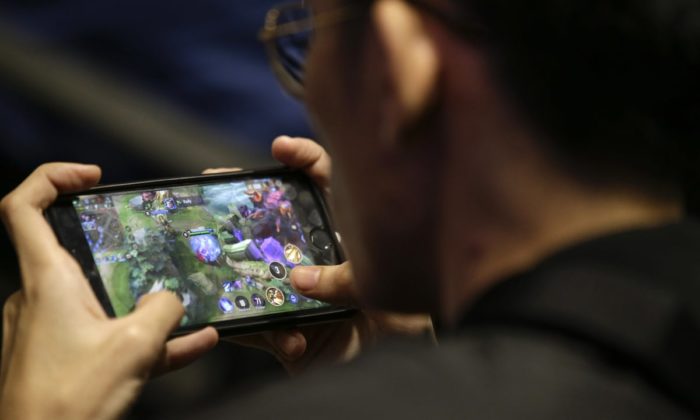
Of all the many modern gadgets that we use in our day to day lives, mobile phones are the ones with the most misleading name. It’s been a very long time since mobile phone handsets were just telephones that we can carry around with us. Phones are far more likely to be used for sending text messages or checking social media than they are for using phones. Handling phone calls is just a small part of what they do. A modern phone handset has many different uses, and increasingly, the ability to play video games is a big part of their functionality.
Mobile gaming isn’t a new idea. If you wanted to make a like-for-like comparison, you could probably draw a line between playing games on your mobile phone, and playing games on a Nintendo Game Boy during the 1990s. The release of the first Game Boy was a watershed moment for the gaming industry, and so many millions of people grew up playing with the chunky handsets that there are still regular attempts to revive the original concept today. The existence of the Game Boy (and, to a lesser extent, the Sega Game Gear) prepared us all for the idea of playing games on a hand-held device. Modern mobile phones are just an extension of that same idea, but could they become bigger than the Game Boy ever was? Could they, in fact, eventually replace traditional game consoles entirely?
We only need to look at gaming trends to realize that we’re approaching a point in history where that could happen. Let’s look away from regular video games for a moment, and look at the world of gambling instead. Somewhere between ten and fifteen years ago, online slots became the most popular way of playing slot games with 10 free no deposit, ending the era of slots being a bingo hall attraction. The supremacy of online slots didn’t last for long, though. These days you’ll find that the majority of online slots websites – especially the good ones – have optimized their range of games to work on the screens of mobile phone handsets, with the reels spun by the tap of a screen rather than the click of a mouse. Most of the biggest slot games in the world are now played as mobile slots rather than online slots, and we’re starting to see that trend reflected in other forms of mobile phone gaming.
Just after the turn of the century, when the screens of mobile phone handsets started to get a little larger, we all found ourselves entranced by ‘Snake,’ a simple and yet highly addictive video game. Not long after that, classic games like ‘Tetris’ began to appear built-in to new-release mobile phone handsets. Then the era of internet-connected phone handsets came along, and that changed everything. People didn’t have to rely on their phone’s manufacturer to supply them with games anymore; they could download their own from app stores. Game developers reacted to this change quickly and started creating mobile-specific versions of their most popular games. At first, it was simple games like ‘Super Mario,’ but now you can play titles as advanced and immersive as ‘Call of Duty’ on the device in the palm of your hand. If you’re in any doubt as to how big the phenomenon of mobile gaming has become, consider this fact; within the first seven days of its release last year, the mobile version of ‘Call of Duty’ was downloaded more than one hundred million times. That’s an incredible number, and far outstrips the number of times any ‘Call of Duty’ video game has been bought. That statistic alone suggests that mobile gaming has already outstripped console gaming, but is that a fair comparison to make?
In answer to the question we just posed, we’d say “probably not.” The mobile version of ‘Call of Duty’ is a lot cheaper to download than the latest console version of the game is to buy, and it also doesn’t rely on the user having any additional hardware. You already own your phone, and so spending five dollars on a game to play on it isn’t a big deal. To play the game on a console, you’d need to first purchase the console at a price of several hundred dollars, and then spend a further fifty dollars at least to buy the game. Some of the popularity of the mobile version of ‘Call of Duty’ can probably be put down to ease of access, but that, too, might be about to change thanks to Google Stadia and platforms like it.
Thanks to the arrival of streaming-based gaming – a new format that Stadia is among the pioneers of – the connection between gaming and consoles has been broken. The big advantage that a powerful games console held over any phone handset was processing power. No handset – not even the most expensive and powerful of the new iPhones – could match an Xbox or a PlayStation for processing power. So long as that advantage existed, mobile gaming would likely always be in second place to console gaming. With Stadia, though, all the processing happens on a remote server, with the game streamed to whatever screen the user is playing on. That means the ‘full’ version of ‘Call of Duty’ – or any other cutting-edge game, for that matter, can be played on your phone screen, your television, your tablet, or anything else that has a screen and a means of connecting to the world wide web. You don’t need the console to play the game anymore. You don’t even need a controller – the latest Stadia update allows users to play any game using pop-up controls that appear on the screen of your phone.
Now that the streaming cat is out of the bag, it won’t be going back inside it. We think that streaming will inevitably replace running games on local consoles as the default way of playing games. That might not happen for four or five years, but the continuing advancement of gaming technology will ensure that it eventually does. Streaming will result in the further advancement of mobile gaming. Mobiles may still be limited by their screen size, but if you can ‘cast’ a game from your phone to your television, does that even matter? It might not feel like it right now – especially at a time when everyone is so excited by the new PlayStation 5 – but we think it’s more likely than unlikely the days of consoles are numbered by the advent of mobile gaming.






